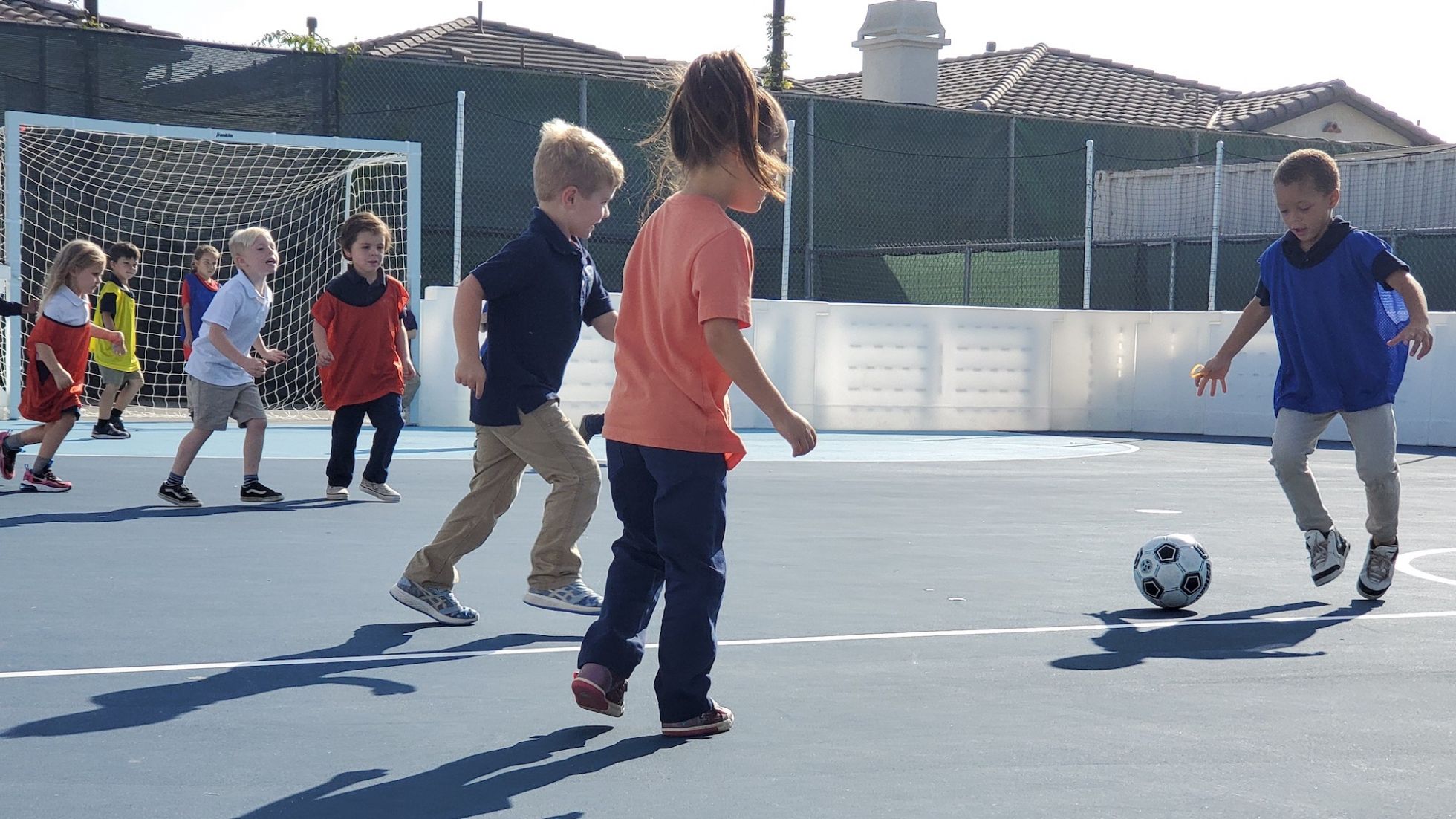Program
The athletics electives program at Scholarship Prep utilizes highly skilled and trained instructors to work with and teach students during the school day as an electives-based course. This means, starting in transitional kindergarten (TK) through eighth grade, students are able to select the specific athletics courses for their school day. The TK-8 electives pathway is designed to ensure that our students are exposed to a variety of athletics offerings by the time they enter high school. This goal of this preparation is to position our students to be ready to participate in high school athletics programs as a result of their heavy focus in grades TK-8.
Our students are expected to work towards and learn about maintaining a healthy body, understand proper nutrition and the physiological benefits of exercise/fitness, and practice to increase proficiency in athletic endeavors.
Our current athletics courses include basketball and soccer.
Research - Health Benefits
Childhood obesity rates in the United States have nearly tripled. The percentage of children ages 6-11 who are obese increased from 7 percent in 1980 to 18 percent in 2010; among children ages 12 to 19, that figure grew from 5 percent to 18 percent.[1] One study found that among 17 developed nations, the U.S. had the highest rates of childhood obesity among those ages 5-19.[2]
Therefore, Scholarship Prep teachers will incorporate health instruction into core content areas during the regular school day. Beginning in transitional kindergarten, topics such as physiology, nutrition, diet, and healthy choices will be introduced and built upon at each grade level. All students will learn about physiology and practice maintaining proper health by developing responsible lifelong habits in and out of the classroom. Students will also understand the connection between nutrition, health, and success in athletic endeavors.
[1] Centers for Disease Control
National Academy of Sciences, 2013
Research - Academic Benefits
Physical activity is associated with improved academic achievement, including grades and standardized test scores. Further, such activity can affect cognitive skills, attitudes and academic behavior, including enhanced concentration, attention, and improved classroom behavior.
In a study published in 2007 in the Research Quarterly for Exercise and Sport, researchers found that children ages 7-11 who exercised for 40 minutes daily after school had greater academic improvement than same-aged kids who worked out for just 20 minutes.
According to John J. Ratey, clinical associate professor of psychiatry at Harvard Medical School and the author of Spark: The Revolutionary New Science of Exercise and the Brain, memory retention and learning functions are all about brain cells actually changing, growing, and working better together.
